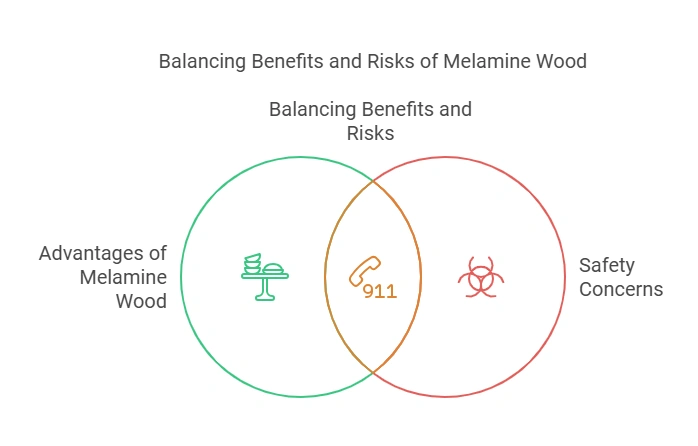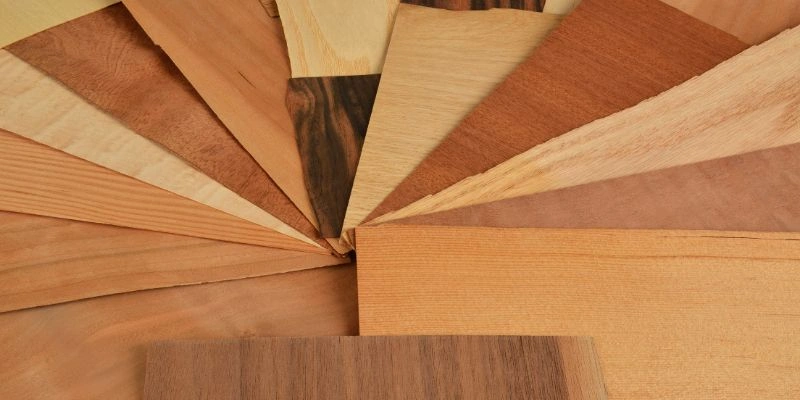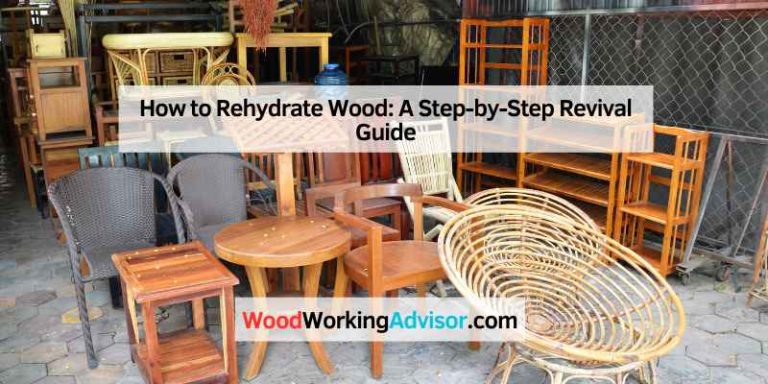Is Melamine Wood Safe? Unveiling the Truth
Melamine wood is generally safe for use in furniture and cabinetry. Its surface is non-toxic and resistant to moisture and stains.
Melamine wood has gained popularity in modern interior design due to its durability and aesthetic appeal. Made from a resin-infused paper layer bonded to particleboard, it offers a sleek finish that mimics natural wood. Homeowners appreciate its affordability and easy maintenance, making it a favorite choice for kitchens and living spaces.
While melamine is safe for everyday use, concerns sometimes arise regarding its manufacturing process and the potential release of formaldehyde. Understanding the safety of melamine wood helps consumers make informed decisions for their homes. Choosing quality products ensures a balance between style, functionality, and safety.
Introduction To Melamine Wood
Melamine wood is a popular material made from wood particles and resin. It is often used in furniture and cabinetry. The surface is smooth and easy to clean. This makes it a favorite choice for many people.
Common uses of melamine wood include kitchen cabinets, tables, and shelves. It is also found in office furniture and school desks. People love it for its durability and affordability.
Many manufacturers treat melamine wood to resist scratches and stains. This helps keep surfaces looking new. It can come in many colors and designs, making it versatile.
Chemical Composition Of Melamine
The chemical composition of melamine mainly includes melamine resin and urea. These ingredients combine to create a strong material. Melamine resin is a type of plastic. It is made from carbon, hydrogen, and nitrogen compounds.
Key ingredients in melamine include formaldehyde, which helps bond the resin. Urea is another important component. It helps in creating a durable finish. The combination of these materials makes melamine wood popular for furniture.
Melamine is manufactured through a process called polymerization. This involves heating and mixing the ingredients. The process creates a solid, durable product. After curing, the melamine is ready for use in various applications.
Perceived Advantages Of Melamine Wood
Melamine wood is known for its strong and long-lasting nature. It resists scratches and stains, making it ideal for busy homes. This durability means fewer repairs and replacements over time.
Its aesthetic appeal is another great feature. Melamine wood comes in various colors and designs. This versatility allows it to fit into any style of room. Whether modern or traditional, it looks good everywhere.
Many people appreciate the easy maintenance of melamine wood. A simple wipe with a damp cloth keeps it clean. This makes it a popular choice for furniture and cabinets.

Safety Concerns And Myths
Many people worry about the safety of melamine wood. Common myths suggest it is highly toxic. In reality, melamine is safe when used correctly. It is often used in furniture and kitchenware.
Melamine does not release harmful chemicals under normal use. Formaldehyde is sometimes mentioned, but levels are very low. Most health organizations say it is safe for everyday use.
Some people fear melamine may cause allergic reactions. This is rare and usually not serious. Proper care and maintenance help keep melamine products safe.
| Myth | Fact |
|---|---|
| Melamine is highly toxic. | Melamine is safe when used correctly. |
| Melamine causes allergic reactions. | Allergic reactions are rare. |
| Melamine releases harmful chemicals. | Levels are very low and safe. |
Regulatory Standards For Melamine Safety
Melamine wood safety is important for consumers. Many countries have set regulatory standards. These standards ensure that melamine products are safe for use.
Global safety guidelines include limits on toxic substances. Testing must confirm that melamine wood meets these limits. Various organizations provide certifications for safety compliance.
| Region | Certification Body | Standard |
|---|---|---|
| Europe | CE Marking | EN 71 |
| USA | ANSI | ANSI A208 |
| Canada | CSA | CSA O325 |
Manufacturers must follow these standards. This helps keep consumers safe while using melamine wood products.
Practical Tips For Safe Use Of Melamine Products
Choosing high-quality melamine wood ensures safety and durability. Look for products that meet safety standards. Check for certifications and labels. Avoid cheap options that may contain harmful chemicals.
Maintenance is key for melamine products. Clean surfaces with a damp cloth regularly. Avoid harsh chemicals that can damage the finish. Use coasters and mats to protect the surface.
| Care Tips | Do’s | Don’ts |
|---|---|---|
| Cleaning | Use a damp cloth | Avoid abrasive cleaners |
| Protection | Use coasters | Don’t place hot items directly |
| Inspection | Check for scratches | Ignore wear and tear |
Alternatives To Melamine Wood
Natural wood</strong is a beautiful choice for furniture and decor. It offers a unique look and feel. Each piece has its own charm and character. Unlike melamine, it is made from real trees.
Eco-friendly options are increasingly popular. Bamboo is a strong and sustainable choice. It grows quickly and does not harm the environment. Reclaimed wood is another great option. It reduces waste and gives a rustic appeal.
| Material | Benefits |
|---|---|
| Natural Wood | Unique look, durable, long-lasting |
| Bamboo | Fast-growing, eco-friendly, strong |
| Reclaimed Wood | Reduces waste, rustic style, durable |
Conclusion: Balancing Benefits And Risks
Melamine wood has many benefits. It is durable and affordable. Many people use it for furniture and cabinets. The surface is easy to clean and can resist scratches.
Safety concerns exist. Some worry about formaldehyde emissions from melamine. It is important to choose products that meet safety standards. Look for certifications that ensure low emissions.
The future of melamine in the market looks promising. Many manufacturers are focusing on safer options. Expect more eco-friendly choices in the coming years. Awareness about safety will continue to grow.
| Benefits | Risks |
|---|---|
| Durable | Formaldehyde emissions |
| Affordable | Low-quality products |
| Easy to clean | Not fully recyclable |

Frequently Asked Questions
Is Melamine Wood Toxic?
Melamine wood is generally considered safe for use. However, it can release formaldehyde, a chemical that may pose health risks. Ensure proper ventilation and choose low-emission products to minimize exposure. Always check for certifications that indicate safety standards.
Can Melamine Wood Be Used For Food Contact?
It’s not recommended to use melamine wood for direct food contact. The surface can harbor bacteria and may release harmful chemicals. Always opt for food-safe materials when preparing or serving food to ensure safety and hygiene.
How Durable Is Melamine Wood Furniture?
Melamine wood is quite durable and resistant to scratches and stains. It is often used in cabinets and countertops due to its resilience. However, it may not withstand extreme heat, so avoid placing hot items directly on it.
Is Melamine Wood Environmentally Friendly?
Melamine wood is made from particleboard and may contain formaldehyde. However, many manufacturers are now producing low-emission options. Look for certifications like CARB or EPA to ensure it meets environmental safety standards.
Conclusion
Melamine wood offers a blend of durability and aesthetic appeal. While it is generally safe for everyday use, awareness of potential risks is crucial. Always choose high-quality products and ensure proper ventilation during installation. By making informed decisions, you can enjoy the benefits of melamine wood without compromising safety.







